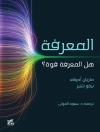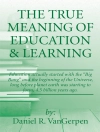This book explores best practice approaches to undertaking enquiry into learning and teaching in higher education for staff from all academic disciplines. A general introduction to the methods most commonly used in undertaking enquiry in the field of education is complemented by chapters exploring how research methods from a range of disciplinary areas can be adapted and used for educational enquiry.
New to this second edition:
· Chapters on interdisciplinary educational enquiry in geography and using ethnographic methods for educational enquiry
· New case studies and suggested activities
· A reflective final chapter inviting readers and their institutions to develop and promote an organisational culture founded on critical enquiry
This is essential reading for anyone undertaking HE qualifications in learning and teaching (including PGCTLHE and PGCAP) and for academics wishing to apply their skills of research and enquiry to their learning and teaching practice.
Spis treści
PART ONE: UNDERSTANDING EDUCATIONAL ENQUIRY
Chapter 1: What is educational enquiry and why is it important?
Chapter 2: What do I need to know before I read educational literature?
Chapter 3: How is educational literature evidenced and reviewed?
Chapter 4: What about ethics and safety?
Chapter 5: What kind of data should I collect and use?
Chapter 6: What about dissemination?
PART TWO: ENQUIRY IN THE DISCIPLINES
Chapter 7: Enquiry into learning and teaching in the physical sciences
Chapter 8: Enquiry into learning and teaching in mathematics and engineering
Chapter 9: Enquiry into learning and teaching in the life sciences
Chapter 10: Enquiry into learning and teaching in arts and creative practice
Chapter 11: Enquiry into learning and teaching in the humanities
Chapter 12: Enquiry into learning and teaching in the health professions
Chapter 13: Enquiry into learning and teaching in the professions: the case of law
Chapter 14: Interdisciplinary enquiry into learning and teaching: lessons from geography
Chapter 15: Enquiry into learning and teaching in the social sciences: engaging with ethnographic research
Chapter 16: Developing and promoting a culture of critical enquiry within higher education
O autorze
Prof. Mike Mc Linden is based in the School of Education at the University of Birmingham as has over 25 years’ experience of curriculum design, delivery and evaluation. He has a broad interest in professional learning and pedagogy and has been involved in a range of funded pedagogical projects in partnership with colleagues in the sector. This includes Strand Lead (Part Time Learners) for HEA-funded ‘Flexible Pedagogies’ project. Mike’s research interests include developing ‘research-informed’ pedagogical practice with a particular focus on the development of student-centred approaches (including problem/enquiry-based learning). With colleagues at the University, he has led a number of funded projects that link to strategic developments within the institution. Mike′s disciplinary professional role is concerned with the inclusion of children and young people with special educational needs and disabilities. He is co-Director of the Visual Impairment Centre for Teaching and Research (VICTAR) in the Department of Disability Inclusion and Special Needs (DISN), Programme Director for the professional development courses in vision impairment, and is a Principal Fellow of the Higher Education Academy.












